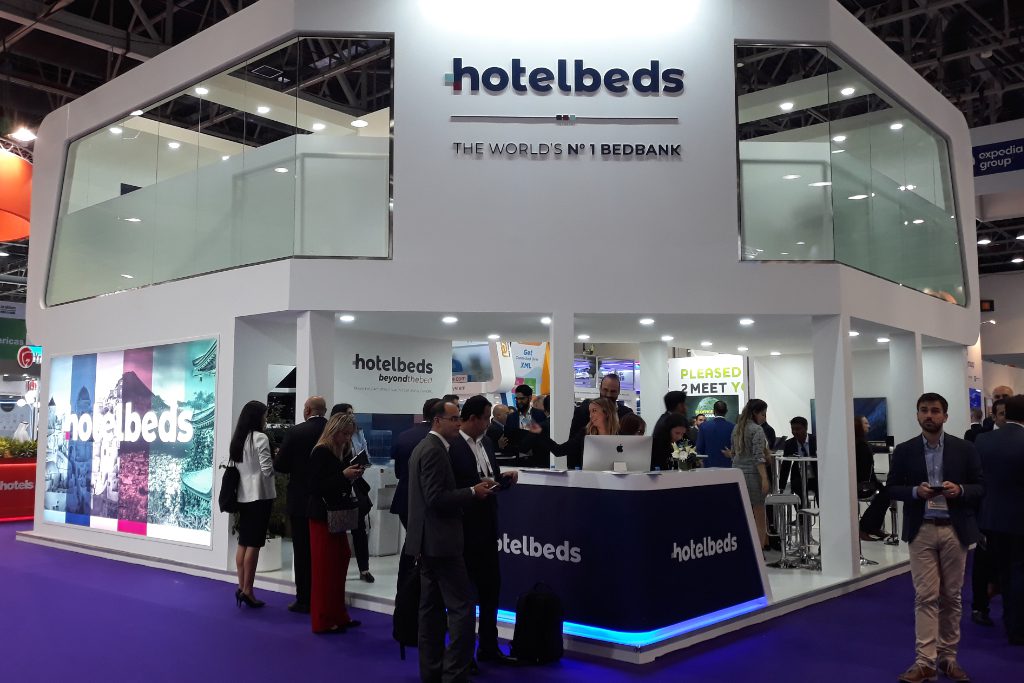Skift Take
The collapse last week of Amoma suggests that an industrywide crackdown on online travel agencies that violate hotel contracts is getting serious. For example, many hoteliers have wanted Hotelbeds to crack down on bad behavior by some agencies. The distributor of wholesale rates has responded by taking action.
A rising wave of hoteliers has been complaining that Hotelbeds — and similar companies that move hotel inventory at wholesale rates to offline sources — haven’t been playing fair. They allege so-called bedbanks have routed some of the discounted inventory through online travel agencies that disguise the origin of the discounts and offer them to the public without permission.
The issue drew a spotlight late last week when online travel agency Amoma collapsed. Hoteliers had long suspected that Amoma was often repurposing their inventory meant for niche channels, such as ethnic offline travel agents, tour operators, and airline websites, and selling it to consumers online instead.
Some hoteliers argued that the spread of wholesale rates online creates a price war on search sites like Google and Trivago, pulling down overall prices.
Hotelbeds, the largest middleman for wholesale hotel inventory, has bristled at such complaints, which it has said are unfounded.
On Monday, the Palma, Spain-based company said in an interview that it had been taking action.
For example, Hotelbeds said that it reduced Amoma to about 1 percent of its sales.
“Amoma is one key example of us making sure that we’ve been significantly reducing our business with clients that hoteliers consider not to be generating value,” said managing director Carlos Muñoz.
A year ago, Hotelbeds created a “three strikes” policy. Now whenever it catches a customer putting inventory in the wrong channel three times, it stops sales to the customer, Muñoz said.
In the last year, Hotelbeds has had to hold back about $330 million (€300 million) worth of inventory from partners that hotels believe break contracts, Muñoz said.
The company has also more broadly ramped up its support of hoteliers over their concerns about managing online rate parity and the so-called leakage of non-contracted rooms, Muñoz said. Hotelbeds has built up “a full team” to track clients distributing opaque rates in a consumer channel, he said.
The excommunication of Amoma mattered.
One of the brands Hotelbeds acquired in 2017, GTA, generated more than $75 million (€70 million) a year of illicit bookings through Amoma at the time of the 2017 deal, one hotelier anonymously claimed.
In March, OTA Insight, a business intelligence startup, named Hotelbeds and its sister brand GTA and Tourico as the top three largest “undercutting wholesalers worldwide” by volume.
Speaking in general, Hotelbeds said some skeptics are making claims based on outdated information or misinformation.
Complex Problem
What is the problem, exactly? One hotelier, choosing to remain anonymous, detailed a representative incident.
Amoma offered “a studio” at the hotel for $225 (£180), the London-based hotelier alleged. The hotelier booked it to find the source. It got a confirmation for a “standard studio” for $150 (£120), it said. The hotelier had created this inventory for the offline wholesale market, they said. The online travel agency had allegedly marked up at its discretion the wholesale rate.
If a customer had booked a “studio” at that rate, they might have shown up disappointed to find the hotel had assigned them to one of its smallest rooms. The reservations could’ve surprised a front-desk worker. Proving that the hotel never meant to offer that room at that rate would have been impossible. The customer might post bad reviews of the hotel online, while the hotelier alleged it would be unable to get Amoma to respond to queries.
Merger Integration Continues
Hotelbeds has been integrating its 2017 acquisitions of GTA and Tourico. On a scale of 0 percent to 100 percent, the integration is 95 percent done, Muñoz said.
In March and April, credit agencies Moody’s and S&P Global had downgraded their rating for some of Hotelbeds debt because of delayed progress in the company delivering synergies. Hotelbeds continued to expect it will achieve the majority of planned synergies by the end of 2020, Muñoz said.
The acquisitions meant that Hotelbeds now works with more than 180,000 hotels. In the past few months, the group has signed deals to add hotel and hotel-style inventory from new market entrants like Cloudbeds, Selina, and Oyo.
Hotelbeds helps all these suppliers access demand from travel buyers like tour operators, retail travel agents, airline websites, and loyalty schemes.
The Daily Newsletter
Our daily coverage of the global travel industry. Written by editors and analysts from across Skift’s brands.
Have a confidential tip for Skift? Get in touch
Tags: hotel distribution, hotelbeds, hotelbeds group, online travel agencies, wholesale, wholesalers
Photo credit: Shown here is the Hotelbeds stand at the ITB trade fair in Berlin in March 2019. Hotelbeds Group
